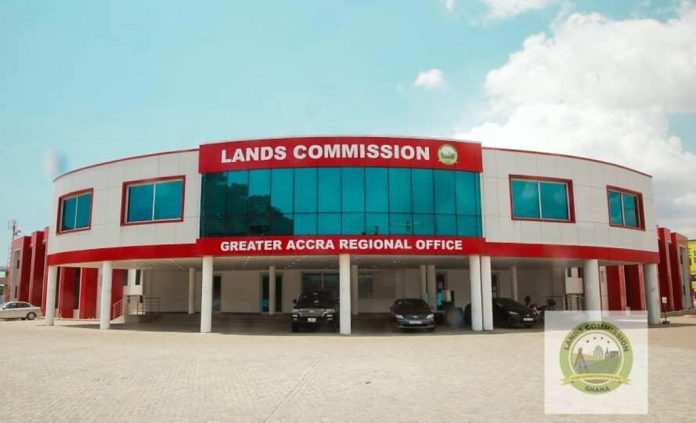Transparency International Ghana (TI-Ghana), a Non-Governmental Organisation, in collaboration with the Lands Commission has sensitised the residents of New Konkompe, a farming community in the Bono East Region on key provisions in the Land Act, 2020.
The beneficiaries, comprising women farmers, vulnerable and youth groups were taken through legal advice, disputes, administrative abuses as well as human rights and corruption provisions in the Act.
It was in line with the organiser’s Community Land Clinic and Mobile Advocacy and Legal Advice Centre (Mobile ALAC) programme.
Mr Michael H. Okain, the Project Coordinator of the TI-Ghana, explained that the sensitisation was part of the implementation of the phase two of the TI-Ghana’s Land and Corruption in Africa (LCA II) project.
The project, aimed at closing the justice gap in the land sector, by bridging para-legal and institutional services directly to the community, strengthening transparency and accountability in the nation’s land governance system.
Mr Bernard Kofi Boateng, Bono East Regional Surveyor of the Lands Commission, enlightened the participants on Act 1036 and its relevance to customary landholders of women, youth and marginalised groups.
He said that it was the mandate of the commission to value, survey and undertake land registration, saying the Act made land registration compulsory.
“The Act mandates renewal of residential lands every 99 years, 25 years for lands used for poultry and 50 years for lands used for cash crop production”, he stated, saying the Act 1036 also required registration of farm lands.
Nana Gyampamfi Anokye, a sub-chief at New Konkrompe, assured the people of accountability and transparency in dealing with issues relating to lands in the area.
Mr Micheal Osei, the Manager of Atebubu Stool Lands Secretariat urged landowners to do proper documentation at the Secretariat, saying that it guaranteed the right to ownership of lands.
Nana Owusu Amoako Kyerefo, the Adehyehene (sub-chief) of the Atebubu Traditional Council, lauded the sensitisation and commended the organisers for selecting the municipality to benefit and urged the participants to use the knowledge they had acquired to bring about positive change in the land administration sector.
Later in an interview, Mr Osei Bonsu Aning, the Ashanti Regional Officer of the TI-Ghana, told the Ghana News Agency (GNA) that empowering residents on the Act 1036 remained essential to tackle emerging challenges in the land sector.
GNA









